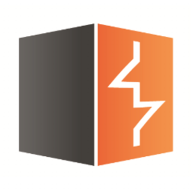

Burp Suite Professional and SonarQube are both competitors in the realm of software security and quality. Burp Suite leans towards cost-effectiveness in manual testing and feature variety, while SonarQube excels in static code analysis and integration capabilities.
Features: Burp Suite Professional includes powerful penetration tools such as Intruder and Repeater, comprehensive plugin support, and automation features tailored for in-depth web application security testing. SonarQube offers strong code quality analysis integrated into development pipelines, static code analysis with extensive plugin support, and a user-friendly dashboard for tracking quality metrics.
Room for Improvement: Burp Suite Professional could enhance reporting and scanning capabilities, reduce false positives, and improve RESTful API testing, with users suggesting enhancements in automation and integration features. SonarQube users see a need for improvements in dynamic and real-time code analysis, reduced false positives, and expanded language and framework support to make its extensive features more accessible.
Ease of Deployment and Customer Service: Burp Suite Professional provides an established on-premises deployment model with responsive technical support and a large community. SonarQube offers deployment flexibility with on-premises, hybrid, and cloud options, and competent customer service supported by comprehensive documentation and resources.
Pricing and ROI: Burp Suite Professional is noted for being cost-effective despite some regional concerns, offering a balanced return on investment through affordability and feature richness. SonarQube's pricing model, with an affordable open-source edition, aligns with market standards and offers cost-effective solutions for larger code repositories, making it accessible for organizations on tight budgets.
It is easily integrable with the CI/CD pipeline and supports multiple projects with its extensive plugin options.
I have seen a return on the investment from SonarQube Server (formerly SonarQube) because the value it adds relates to static code analysis and vulnerability assessments needed for our FDA approval process.
We see productivity increasing based on the fact that the code review is mostly automated, allowing the developer to fix the code themselves before assigning it to someone else to review, thus receiving that ROI.
The technical support from PortSwigger is excellent.
The technical support for PortSwigger Burp Suite Professional is pretty good, and I would give it a nine.
The community support is quite effective.
The customer service and support for SonarQube Cloud are responsive and helpful.
Integrating it into different solutions is straightforward.
There are limitations, and it seems to have fewer capabilities than Veracode.
It has been used in multiple projects and performs well.
I would rate the scalability of SonarQube Server as a 10 because we can configure the server to scan multiple projects based on the number of lines.
PortSwigger Burp Suite Professional is very stable.
PortSwigger Burp Suite Professional is a very stable tool, and I would rate its stability as eight out of ten.
I think SonarQube Server (formerly SonarQube) is stable, and we did not face any problems unless there was a power outage or if the LAN cable was plugged out.
From my team's feedback, it is almost an eight out of ten.
It is a quite stable solution.
Some AI features might be added.
The dashboard of PortSwigger Burp Suite Professional could be made more user-friendly.
I would like to see SonarQube Cloud provide more detailed solutions for fixing code issues, especially solutions related to CVEs.
I need a solution that can bring together three key areas: vulnerabilities, static scanning, and misarchitecture.
Static code analysis is good, but the product lacks dynamic code scanning capabilities, an area where Veracode excels.
The pricing for PortSwigger is very cheap, and there are benefits in terms of time and cost savings.
I find the price of PortSwigger Burp Suite Professional to be very cost-efficient.
I would rate the pricing for SonarQube Server (formerly SonarQube) as an 8, where 1 is very cheap and 10 is very expensive, because Coverity is very expensive, and while SonarQube is not cheap, it is still less expensive than Coverity.
They always offer around a two-year contract, but we always take a one-year contract because it's expensive.
The freemium version of SonarQube Server offers excellent value, especially compared to the high costs of Snyk.
The most valuable feature of Burp Suite Professional is its ability to schedule tasks for scanning websites.
I especially value the features for penetration testing.
The most valuable features of PortSwigger Burp Suite Professional are its ease of use and its cost efficiency.
Some of the static code analysis capabilities are the most beneficial.
I find SonarQube Cloud very easy to use and simple to integrate initially.
It gives precise reports compared to Coverity and has a slightly lower number of false positives.
| Product | Market Share (%) |
|---|---|
| SonarQube Server (formerly SonarQube) | 19.3% |
| PortSwigger Burp Suite Professional | 2.3% |
| Other | 78.4% |


| Company Size | Count |
|---|---|
| Small Business | 16 |
| Midsize Enterprise | 14 |
| Large Enterprise | 35 |
| Company Size | Count |
|---|---|
| Small Business | 41 |
| Midsize Enterprise | 24 |
| Large Enterprise | 79 |
Burp Suite Professional, by PortSwigger, is the world’s leading toolkit for web security testing. Over 52,000 users worldwide, across all industries and organization sizes, trust Burp Suite Professional to find more vulnerabilities, faster. With expertly-engineered manual and automated tooling, you're able to test smarter - not harder.
PortSwigger is the web security company that is enabling the world to secure the web. Over 50,000 security engineers rely on our software and expertise to secure their world.
SonarQube provides comprehensive support for multi-language development, custom coding rules, and quality gates, integrated seamlessly into CI/CD pipelines. It empowers teams with clear insights through intuitive dashboards, identifying vulnerabilities, code smells, and technical debt.
SonarQube is renowned for its extensive capabilities in static code analysis, making it an invaluable tool for maintaining code quality. By fully integrating into development processes, it allows organizations to manage vulnerabilities and ensure compliance with coding standards. Its extensive community and open-source roots contribute to its accessibility, while robust dashboards facilitate code quality monitoring. Despite its strengths, feedback suggests enhancing analysis speed, better integration with DevOps tools, and refining the user interface. Users also point to the need for handling false positives effectively and expanding on AI-based features for dynamic code analysis.
What are SonarQube's main features?In industries like finance and healthcare, SonarQube aids in obtaining regulatory compliance through rigorous code quality assessments. It is implemented to enhance cybersecurity by identifying potential vulnerabilities, while ensuring code meets the stringent standards demanded in these fields. As part of a broader development ecosystem, its integration in CI/CD pipelines ensures smooth and efficient software delivery, catering to phases from code inception to deployment, effectively supporting large-scale and critical software applications.
We monitor all Application Security Tools reviews to prevent fraudulent reviews and keep review quality high. We do not post reviews by company employees or direct competitors. We validate each review for authenticity via cross-reference with LinkedIn, and personal follow-up with the reviewer when necessary.